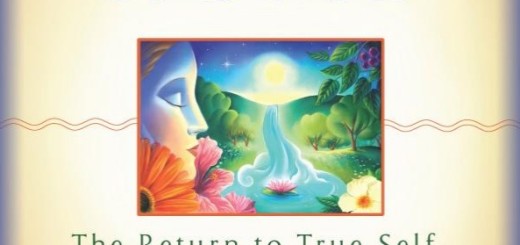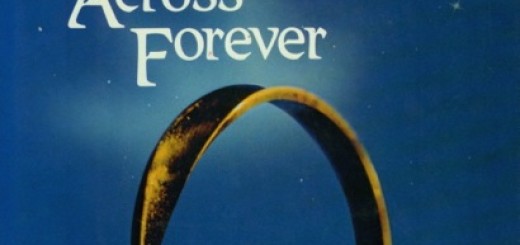Just A Few of the Gems of Profound Wisdom I Found in Paulo Coelho’s book, The Fifth Mountain – a worthy read!
 Paulo Coelho’s The Fifth Mountain, is a retelling of the story of Elijah, the famous prophet of ancient Israel. In the scene below, Elijah has fled the city of Gilead. The Lebanese-born princess, Jezebel, has convinced her husband, Ahab, King of Israel, that the prophets are a “menace to the growth and expansion of Israel”. In truth, her goal is to convert the people to the religion of her homeland. 450 nabi are executed while Elijah, having miraculously escaped a soldier’s dead-on arrowshot, runs away into the desert. After spending several days alone, a crow appears, dropping a tidbit of meat from his beak so Elijah can eat. Soon, he plays a game with himself, pretending he has become the crow and begins to talk to himself as if he is the crow. The “conversation” holds several gems of profound wisdom: how we choose to see things relates to our level of happiness; never give up on your dreams and desires; see the sacred in everything; and know that as our destinies unfold, the paths we choose are our apprenticeships. With spare language and eloquent storytelling ability, Coelho captures all of these insights in this one short piece of the book. Enjoy!
Paulo Coelho’s The Fifth Mountain, is a retelling of the story of Elijah, the famous prophet of ancient Israel. In the scene below, Elijah has fled the city of Gilead. The Lebanese-born princess, Jezebel, has convinced her husband, Ahab, King of Israel, that the prophets are a “menace to the growth and expansion of Israel”. In truth, her goal is to convert the people to the religion of her homeland. 450 nabi are executed while Elijah, having miraculously escaped a soldier’s dead-on arrowshot, runs away into the desert. After spending several days alone, a crow appears, dropping a tidbit of meat from his beak so Elijah can eat. Soon, he plays a game with himself, pretending he has become the crow and begins to talk to himself as if he is the crow. The “conversation” holds several gems of profound wisdom: how we choose to see things relates to our level of happiness; never give up on your dreams and desires; see the sacred in everything; and know that as our destinies unfold, the paths we choose are our apprenticeships. With spare language and eloquent storytelling ability, Coelho captures all of these insights in this one short piece of the book. Enjoy!
Elijah remembered [the woman who used to make bread]. She had come to ask him to make some trays. While Elijah was doing as she asked, he heard her say that her work was a way of expressing the presence of God.
“From the way you make the trays, I can see that you have the same feeling,” she had continued.
“Because you smile as you work.”
The woman divided human beings into two groups: those who took joy in, and those who complained about, what they did. The latter affirmed that the curse cast upon Adam by God was the only truth: “Cursed is the ground for thy sake; in sorrow shalt thou eat of it all the days of thy life.” They took no pleasure in work and were annoyed on feast days, when they were obliged to rest. They used the Lord’s words as an excuse for their futile lives, forgetting that He had also said to Moses: “For the Lord shall greatly bless thee in the land which the Lord thy God giveth thee for an inheritance to possess it.”
“Yes, I remember the woman. She was right; I did enjoy my work in the carpentry shop. She taught me to talk to things.”
“If you had not worked as a carpenter, you would not have been able to place your soul outside yourself, to pretend that it is a crow talking, and to understand that you are better and wiser than you believe,” came the reply. “Because it was in the carpentry shop that you discovered the sacred that is in all things.”
“I always took pleasure in pretending to talk to the tables and chairs I built; wasn’t that enough? And when I spoke to them, I usually found thoughts that had never entered my head. The woman had told me that it was because I had put the greater part of my soul into the work, and it was this part that answered me.
“But when I was beginning to understand that I could serve God in this way, the angel appeared, and – well, you know the rest.”
“The angel appeared because you were ready,” replied the crow.
“I was a good carpenter.”
“It was part of your apprenticeship. When a man journeys toward his destiny, often he is obliged to change paths. At other times, the forces around him are too powerful and he is compelled to lay aside his courage and yield. All this is part of the apprenticeship.”
Elijah listed attentively to what his soul was saying.
“But no one can lose sight of what he desires. Even if there are moments when he believes the world and the others are stronger. The secret is this: do not surrender.”
“I never thought of being a prophet,” Elijah said.
“You did, but you were convinced that it was impossible. Or that it was dangerous. Or that it was unthinkable.”
Elijah rose.
“Why do you tell me what I have no wish to hear?”
Startled at the movement, the bird fled.



